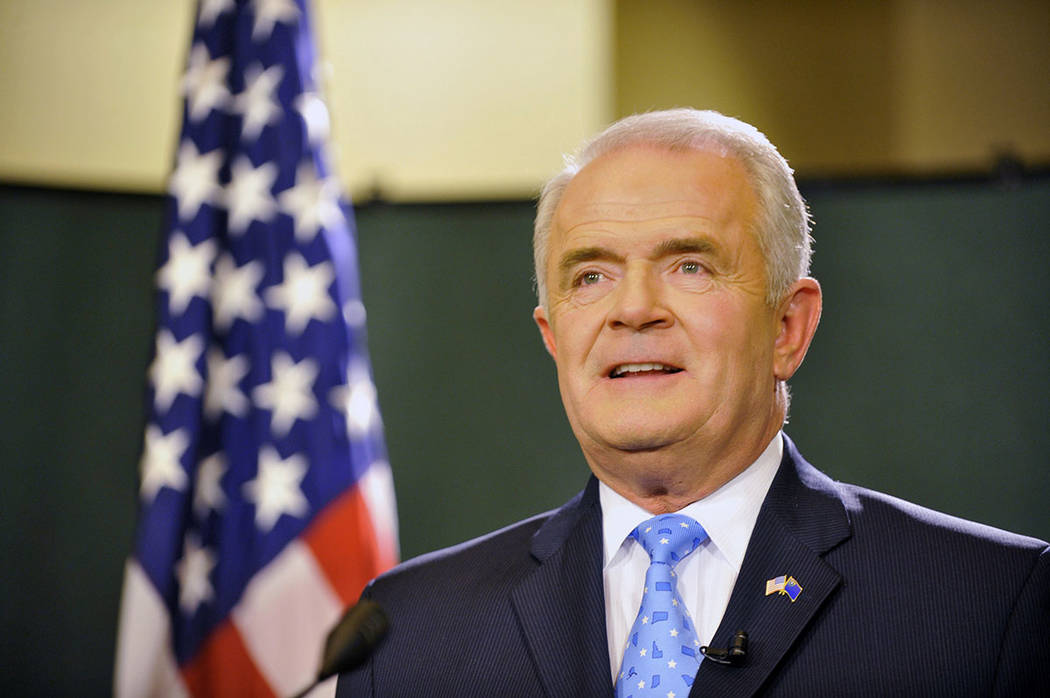STEVE SEBELIUS: Two-thirds question heads to court

There are two closely intertwined issues in the Republican Senate Caucus’ lawsuit against the state seeking to invalidate a tax bill passed in the 2019 session, one legal, the other political.
The lawsuit, filed by all eight Senate Republicans and three businesses that operate in Nevada, argues that a bill preventing the payroll tax from falling to a lower rate is unconstitutional because it failed to muster a two-thirds vote in the Senate. Under the state constitution, any bill that creates, increases or generates revenue needs two-thirds, or 14 votes.
The Democrats got only 13.
First, the political.
It’s never a good look when officials elected to a government body sue that government body, for any reason. It generally represents a failure of the system. Republicans will argue they tried to compromise, but Democrats refused, so they have no choice but to stand up for the constitution.
About that: Republicans demanded Democrats first prove there was a need for the $98 million the state will get by keeping the payroll tax at the current rate. Democrats never did.
But during those negotiations, Republicans said that if Democrats could make that case, they’d be more than willing to raise, say, the sales tax to cover the amount needed, instead of lowering the payroll tax.
It was a hypothetical. It certainly was a more palatable option for rural lawmakers, whose districts generate far less in sales tax than do urban areas. But it still underscores the fact that — hypothetically speaking, of course — Republicans would rather regular folks pay a regressive tax than suffer businesses to pay the same tax they’re already paying at the same rate. That’s also not a good look.
And, with this lawsuit, Republicans are doubling down on that idea: They’d rather deprive schools of this particular revenue stream than burden businesses.
Or would they? In the wake of the lawsuit, Gov. Steve Sisolak has said the promised revenue will still be there for schools even if the Republican lawsuit succeeds and the bill extending the tax is struck down. The money could come from the “rainy day” fund or the state’s ending fund balance, if necessary.
That admits the argument the Republicans made in the session all along: That keeping this tax at its current level wasn’t necessary in the first place, and that no schools or kids will suffer if it is allowed to sunset. The state may have to make other policy or funding priority decisions, but that’s hardly the same as chopping the budget.
Then there are the legal arguments.
Up until the 2019 session, there’s been a broad consensus among Nevada’s political class that extending a tax that is otherwise set to expire, or preventing a tax from falling to a lower rate, is the same thing as a tax increase and thus triggers the constitution’s supermajority requirement.
Even the Legislative Counsel Bureau — which blessed a simple-majority vote this time around in a lengthy memo written for Democratic leaders — seemed to agree in the past with the Republican stance. In past sessions, bills that extended existing taxes at the same rate were marked “requires two-thirds majority vote.”
Those who disagree — including this writer — have looked to the plain language of the constitution and said that because extending an existing tax doesn’t create, increase, or generate additional revenue for the state, it doesn’t trigger the provision. Only if a tax has actually expired would extending it constitute a tax increase.
But the prevailing view has been that of the Tax Foundation, which opined recently in support of the GOP lawsuit: “Simply put, these bills will increase the tax burden on taxpayers (that is, businesses) from what it otherwise would have been. If not for these bills, Nevada would receive less revenue, thereby making (the tax bills) legislative actions that increase revenue.”
Even Democrats seemed to embrace that idea, if only briefly and for political purposes; one iteration of the tax bill seeking GOP support would have required a two-thirds majority. Only when that bill was rejected did Democrats invoke the simple-majority approach and pass the payroll tax bill without Republican support.
It’s a fool’s errand to predict what the courts will do, but the last time the Nevada Supreme Court waded into two-thirds tax policy, things did not work out well. Under pressure to pass a state budget so schools could open in time, the high court held in 2003 that the two-thirds requirement could simply be set aside. The ruling was almost universally panned — and later overturned.
Now, with pressure off and schools safe no matter what, the courts will have an opportunity to examine the issue and thoughtfully consider the implications and meaning of the two-thirds provision. If for no other reason, the Senate Republicans suing their state alongside and on behalf of business will give us the answer to a question that’s persisted ever since the two-thirds requirement was put into the constitution in 1996.
Contact Steve Sebelius at SSebelius@reviewjournal.com or 702-383-0253. Follow @SteveSebelius on Twitter.